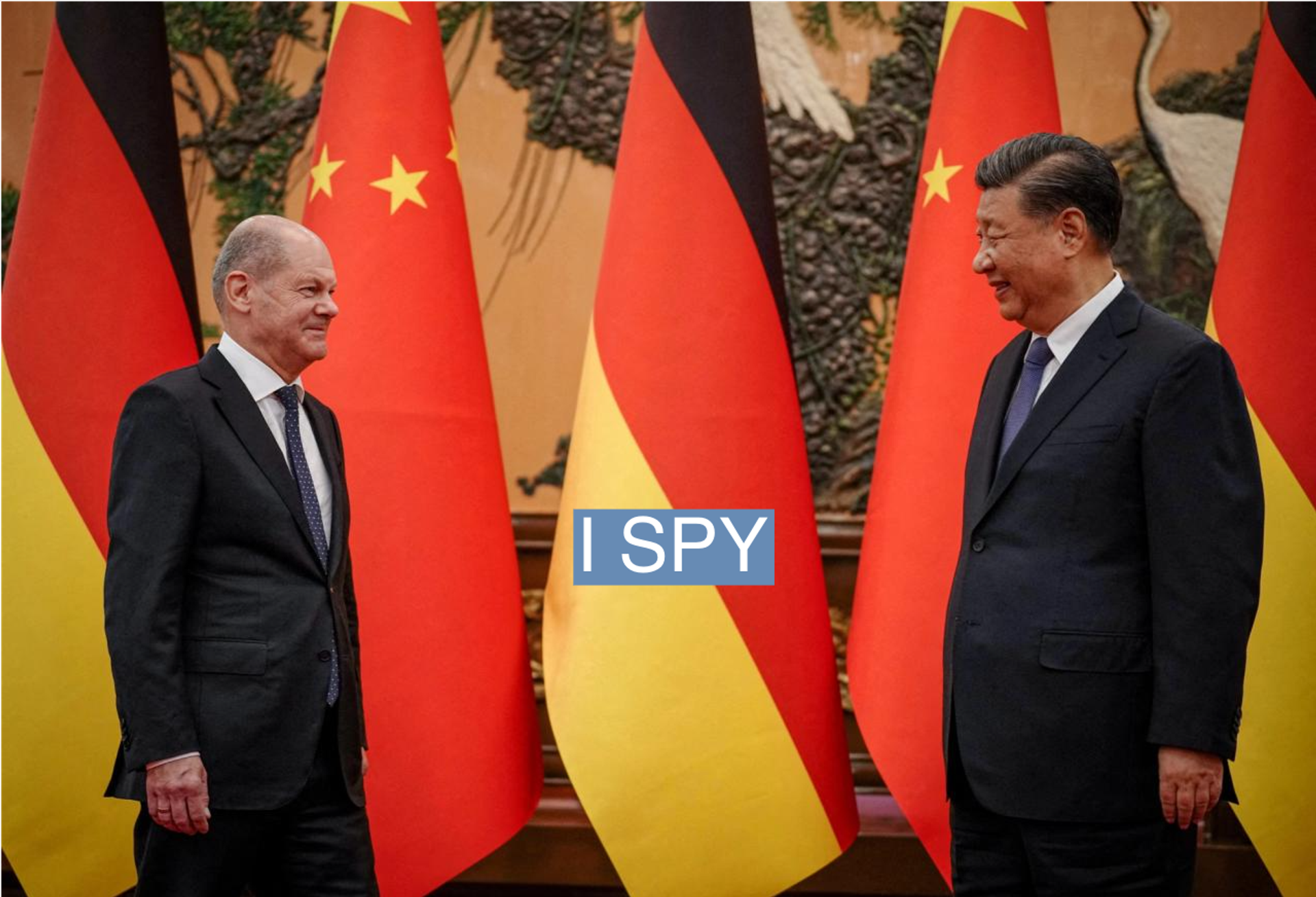The News
The U.K. and Germany have charged five people suspected of being Chinese spies on Monday.
Prosecutors in Berlin charged three people for allegedly handing over technologies with potential military purposes to Chinese intelligence.
All three were accused of exporting a special laser without authorization to China, and two of the three — a married couple — were also accused of helping a Chinese contractor partner with a German university to conduct research on machine parts that could be used to build powerful marine engines.
In the U.K., police announced charges against two men — one of whom was a former high-profile researcher for the Conservative Party — for providing “prejudicial information” to China. The two men were arrested last year but released on bail, pending charges.
The arrests come just days after German Chancellor Olaf Scholz visited China in an attempt to mitigate tensions between Europe and Beijing over concerns of China’s overcapacity of cheap green technology to the EU. But the espionage allegations could complicate the relations and hamstring leaders’ efforts to stabilize economic ties with Beijing.
The Chinese Embassy in Germany denied the accusations of espionage.
“We call on Germany to desist from exploiting the espionage accusation to politically manipulate the image of China and defame China,” a spokesperson said.
SIGNALS
Espionage allegations highlight need for more scrutiny into university partnerships with China
The suspected spies’ efforts to mediate a cooperation agreement between a German university and a Chinese contractor for a study on marine engines’ parts “doesn’t sound secretive, rather quite open,” observed China watcher Fred Sengers. China is still heavily reliant on sourcing these engine parts from foreign suppliers, Sengers noted. Some researchers are calling for more scrutiny into how universities partner with non-democratic states like China. The incident “highlights once again the need for Germany to invest a lot more in research security not only but especially in cooperation with China,” Thorsten Benner, the director of the Berlin-based Global Public Policy Institute, wrote on X.
UK’s Conservative Party divided on China engagement
The espionage allegations, made public last September, divided the Conservative Party into two factions battling over “Britain’s engagement with China,” The Telegraph wrote last year. On one hand, U.K. Prime Minister Rishi Sunak has sought closer economic ties to Beijing, while the “hawks” in the party have called for China to be designated a threat. The announcement of the arrest of the well-connected Conservative Party researcher during last year’s G20 summit in India was “awkward” timing for Sunak, who was forced to bring it up with the Chinese premier. “It’s just possible that the disclosures of their arrests have been used to try to push Mr Sunak into a tougher stance on China,” The Telegraph wrote at the time.
Beijing enlists public to be on alert for foreign spies
China’s secretive Ministry of State Security — the powerful civilian spy agency — has “been transformed into a highly visible presence in public life” that is rallying the public into protecting the country against foreign espionage, Nectar Gan reported for CNN. Propaganda pushed on state broadcasters, streets, subway stations, and social media give pointers on how to identify potential spies, and informants are rewarded for reporting suspicious activity to authorities, according to The Economist’s Drum Tower podcast. The crackdown has already seen global economic ramifications: German pharmaceutical inspectors are refusing to travel to China to certify medicines and drug components in China over fears of the anti-espionage campaign, which could potentially lead to massive drug shortages in Germany, according to the Handelsblatt newspaper.

